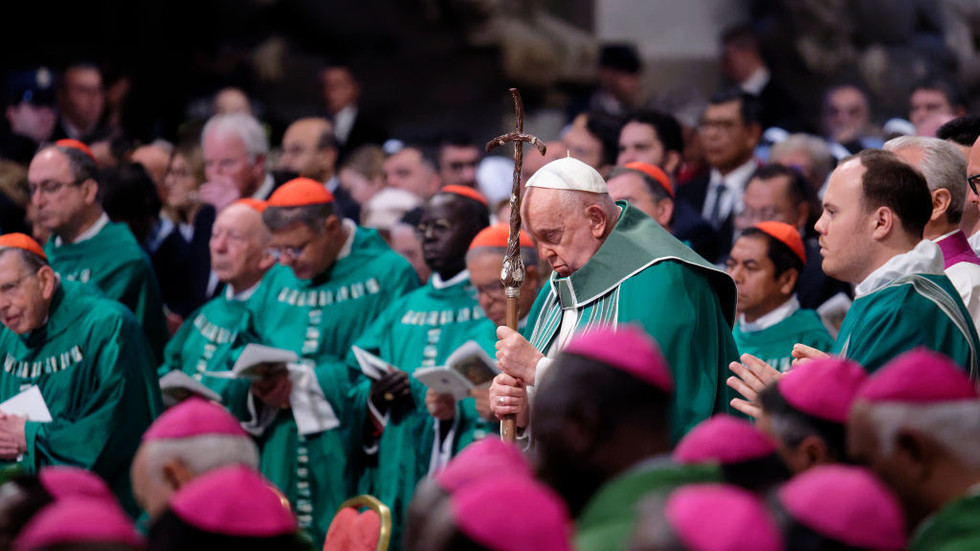The Pontifical Commission for the Protection of Minors has voiced serious concerns regarding the Catholic Church’s inadequate responses to instances of clergy misconduct, particularly with regard to the handling of sex abuse cases. In its inaugural annual report, the commission underscored the need for improved transparency from the Vatican office tasked with processing these allegations. It emphasized the necessity for public apologies and financial reparations for victims as crucial steps in addressing the ongoing crisis within the Church. The report highlighted that victims too often find themselves facing delays and confidentiality in the current system, which only serves to exacerbate their trauma. The commission concluded that access to comprehensible information about their cases is vital for survivors, alongside a demand for a structured compensation policy that acknowledges the rights of victims to receive reparative support.
The issue of clerical abuse within the Catholic Church has been a troubling reality for several decades, shaking the institution to its core. In a striking 2023 study conducted in Switzerland, more than 1,000 cases of sexual abuse involving Catholic priests were identified, with similar reports exposing the widespread nature of the abuse in other countries. A report by the Independent Commission on Sexual Abuse in the Church in 2021 revealed that as many as 330,000 children in France may have suffered abuse at the hands of clergy from the mid-20th century up until 2020. These findings suggest that sexual abuse in the Church is endemic, which underscores the urgency for the Vatican to take significant, corrective action to protect minors and restore the faith of the public.
Pope Francis enacted the Pontifical Commission for the Protection of Minors shortly after his appointment in 2014, aiming to tackle the Church’s rampant abuse crisis with a proactive approach. In a significant move in 2019, the Pope lifted the so-called ‘pontifical secrecy’ surrounding cases of sexual abuse against minors, signaling a shift towards greater accountability and transparency within the Church. However, despite these advancements, there remains skepticism among advocates and experts regarding the effectiveness of these measures, as highlighted by Anne Barrett Boyle, who criticized the commission’s report for its lack of concrete metrics reflecting the Church’s commitment to removing abusive clergy from its ranks.
The commission indicated that the protection for minors varies significantly across the globe, noting that in certain areas, abuse is not yet widely acknowledged or publicized. While some regions have made progress in safeguarding minors, the commission pointed out that other areas, particularly parts of Central and South America, Africa, and Asia, are still lacking in necessary protective measures. The disparate responses to these issues highlight the Church’s failure to adopt a comprehensive global strategy that prioritizes the safety of children and adequately supports victims. Additionally, the commission recommended the establishment of a dedicated Vatican advocate or ombudsman to safeguard victims’ interests and provide essential support.
The dual challenge of addressing the fallout from past abuses while implementing preventive mechanisms moving forward presents a complex landscape for the Catholic Church. Accountability remains a profound concern, with advocates pushing for stringent measures to ensure that bishops actively support the removal of abusers from their positions. The commission’s report raises pressing questions around institutional trust and credibility, especially with the victim/survivor community. Without significant and demonstrable changes in policy and practice, skepticism may linger within the faithful and compound the ongoing crisis of confidence in the Church’s leadership.
Ultimately, the call for greater transparency, accountability, and victim support represents a crucial turning point for the Catholic Church as it strives to confront its history of abuse. The commission’s report serves as a clarion call for the Church to reevaluate its policies and processes, ensuring they align with the urgent need for justice for survivors. Efforts to create a more compassionate and responsive Church must not only address past failings but also establish a future dedicated to safeguarding the dignity and rights of every minor. For genuine healing to occur, a collective commitment towards meaningful change, along with a robust system of support for victims, will be essential in restoring faith in the Church’s moral obligation to protect its most vulnerable members.

